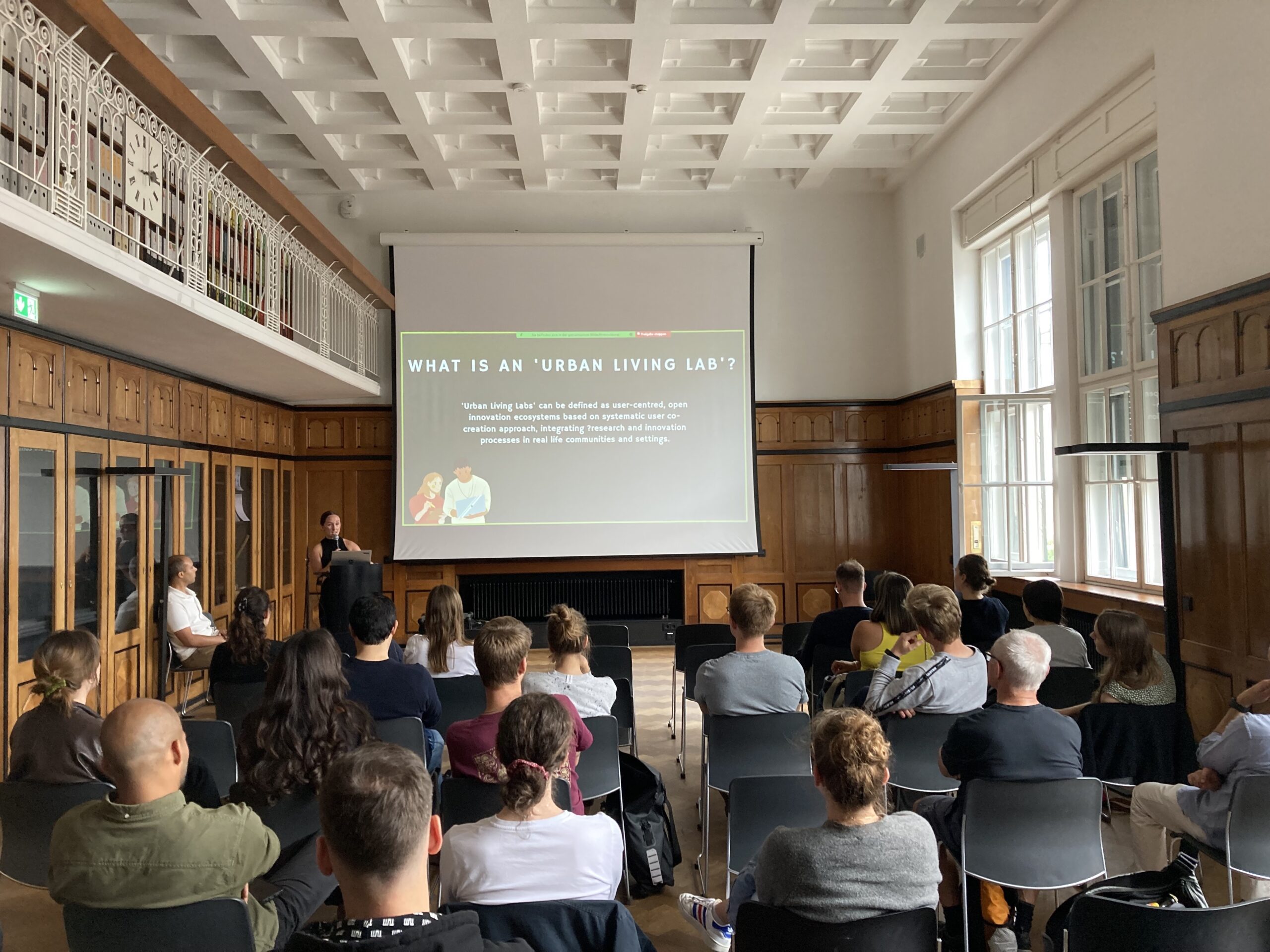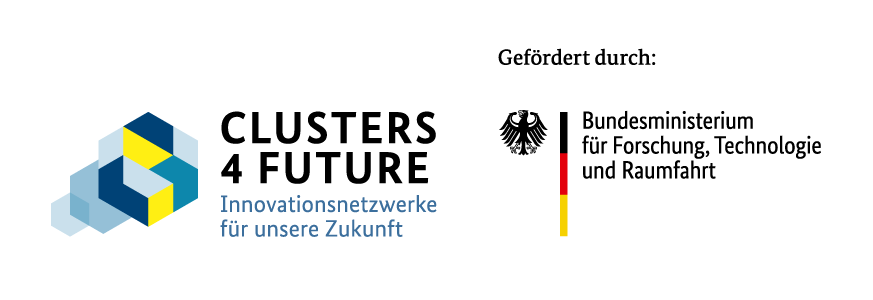In the 4th round of euMOVE in 2023, twelve students with different academic backgrounds visited the metropolitan regions of Budapest, Lyon and Prague to investigate how these regions approach future mobility challenges.
On July 27, they presented their results in front of international guests, Munich mobility department and scholars from different disciplines. The students brought together their academic backgrounds of STS, RESET, politics and technology, mechatronics, civil engineering, architecture and transportation systems. In mixed teams, they organized and went to a field trip in three different metropolitan regions to explore how these regions use shared mobility, mobility pricing, and living labs to counter existing mobility challenges. Further, the groups conducted a comparative analysis of the discourse on mobility in these regions with regard to post growth, the meaning of mobility transition and mobility justice. The immersive experience of the field trip allowed the students to write not only six working papers on these topics, but also to practice science communication via Instagram (www.instagram.com/tum.eumove) and to present their findings for a wider public at the final event.
The project course is a collaboration of the chairs of Automotive Technology, Urban Structure and Transport Planning, Urban Design, Innovation Research (ISPP), and MCube.
The final reports are available as a collection here.

You can download the report here.
How can mobility data and simulations make cities more liveable - and make change visible and tangible?
The MCube Consulting study shows how the Olympic Games could have a sustainable impact on Munich in terms of sport, society and the environment - something that has already been picked up on by many media outlets.
Munich is considering an Olympic bid - our study shows what opportunities and challenges the Games could bring for the economy, environment and society.
How do we want to move tomorrow? This question was the focus of the Citizens Lab at Marienplatz for six days.
The visual utopian Jan Kamensky presented his latest vision in cooperation with the Munich S-Bahn.
Carolin Zimmer from the Chair of Settlement Structure and Transport Planning and Sebastian Preiß from the Hans Sauer Foundation explain in an interview what the project has achieved and what makes it special.
Major award for a strong team: MCube Consulting receives the Innovation Award of the City of Munich - for a solution that reduces administrative workload, improves security and shows how research enables real change.
If Munich bids for the Olympics again, it will not do so arbitrarily - but with vision, attitude and a clear plan.
MCube had its own stand at the trade fair and brought together over 100 mobility pioneers at the "Bridging City Innovation Ecosystems" event above the rooftops of Barcelona.
What does the bus of tomorrow need to look like to convince as many people as possible to change buses voluntarily?
No results available

What is MOSAIQ?
Imagine something: There is more space for people. The streets have more trees and plants. Everyone can get around better. That's how your Schwabing-West district could be in the future. How would you like your district to be? We want to talk to you about it!
The project is called MOSAIQ. MOSAIQ is a research∙project. MOSAIQ means: Mobility and urban climate in the future city∙part. The Technical University of Munich is leading the project.
What is MOSAIQ about?
MOSAIQ wants to make the streets in the city∙part more beautiful. People should feel comfortable there. There should be more space. For meetings and plants, for example. You can help decide what is tried out in the Stadt∙teil. The ideas come from you. Some ideas will be tried out on the streets for a certain period of time.
The aim of MOSAIQ is to make urban districts good places to live.
At the same time, the climate in the city should improve. And people should be able to move around the city easily.
What is happening in the district?